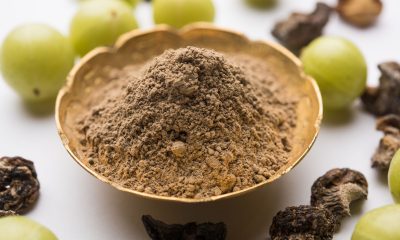Health
Benefits of spinach for weight loss

Discover the benefits of spinach for weight loss.
Nowadays, losing weight or maintaining it has become one of the primary goals of every human being, but the fact that it remains healthy has also gained great strength, which is why looking for different remedies or natural products to achieve it has become a priority.
The reality is that to achieve this goal there is nothing like resorting to that advice that our mothers, grandmothers, and health specialists always repeat: eat fruits and vegetables, as simple as that is what we need to maintain a healthy body, with an ideal weight or manage to lose a few extra pounds that we carry.
If you don’t even care about fruits and vegetables, but you are looking to lose weight healthily, the solution to this big problem is delicious shakes, there are certainly many drinks like these that can help you lose weight, but none compares to the spinach smoothies, since the effect that these products in the body are very effective.
DOES SPINACH HELP YOU LOSE WEIGHT?
Yes, although many doubt it, this vegetable has many characteristics that help with weight loss, such as the fact that it has a high fiber content, a substance that promotes digestion and prolongs the feeling of satiety; the antioxidants, proteins, and healthy fats it contains help reduce high cholesterol, hypertension and circulation problems.
Containing between 93% and 95% water, it manages to hydrate us and purify our body, in addition, its intake favors the elimination of accumulated toxins and supports the metabolic function to burn fat more easily.
SPINACH SMOOTHIE WITH PINEAPPLE AND MANGO
One of the best spinach shakes you’ll find is this, since this natural drink will help fill you with energy, and improve physical and mental performance throughout your day, but its richness in antioxidants and minerals also act against free radicals to prevent aging and deterioration of cells.
Prepare it by mixing 1 ripe mango with 2 cups of spinach, 3 pineapple slices, 2 ripe bananas, ½ avocado, and 125 ml of coconut water. It is recommended to consume it during breakfast 3 times a week.
SPINACH SMOOTHIE WITH ORANGE AND KIWI
With just one glass of this shake, you will get the daily amount that your body needs of vitamin C, even a little more, but not only that, but it will be a great source of fiber, iron, and other substances that help you with weight loss.
Just mix 1 cup of spinach, 2 oranges, 3 kiwis, and 100 ml of water. Take it on an empty stomach immediately after you do it.
SPINACH SMOOTHIE WITH PEACH AND BANANA
This is a very tropical drink that will fill you with energy, and antioxidants and will help you cleanse your body, therefore it is a very good option to lose weight and treat various diseases, such as inflammation and constipation.
Combine 1 cup of spinach, 2 peaches, 1 banana, 2 tablespoons of orange juice, and 125 ml of almond milk. This is a good smoothie to be eaten between meals, so you will calm your hunger.
SPINACH SMOOTHIE WITH YOGURT AND MELON
Losing weight does not mean going hungry and within the spinach smoothies, we have this one that combines the properties of yogurt and melon with this vegetable, which provide nutrients that contribute precisely to losing kilos without going hungry. In addition, the shake also serves to promote the elimination of accumulated waste in the colon and obtain energy.
Mix ½ cup of plain yogurt, ½ cup of honeydew melon, 1 cup of cabbage, 1 cup of spinach, and 10 or 20 ml of coconut water. You can take it during your breakfast time or at snack time.
SPINACH APPLE BROCCOLI SMOOTHIE
For those times when hunger is uncontrollable, this shake is the solution, as it helps control the feeling of appetite while promoting the elimination of waste and fat; It also offers a great contribution of fiber.
Mix 1 apple, 1 cup of spinach, ½ cup of broccoli, 1 lemon, and 125 ml of water; We recommend taking it on an empty stomach for best results.
Health
Dangers and side effects of spirulina

Table of Contents
Health
5 health benefits of bananas for men

Table of Contents
Discover the 5 amazing health benefits of bananas for men.
Bananas have various male health benefits. They can be used effectively to fight against constipation, help protect the kidneys and more.
Bananas are rich in nutrients, including vitamins (A, C, and B6), minerals (potassium, magnesium, folate, riboflavin, niacin, thiamin, and iron), protein, carbohydrates, fat, and fiber.
<img class=”i-amphtml-intrinsic-sizer” style=”box-sizing: border-box; max-width: 100%; display: block !important;” role=”presentation” src=”data:;base64,” alt=”” aria-hidden=”true” /><img class=”i-amphtml-intrinsic-sizer” style=”box-sizing: border-box; max-width: 100%; display: block !important;” role=”presentation” src=”data:;base64,” alt=”” aria-hidden=”true” />
Due to their high nutritional content, bananas exhibit several benefits when consumed, especially for men.
1. Heart and nervous system
The high potassium content in bananas helps protect the heart and nervous system.
It also helps in muscle contraction.
Therefore, bananas are good for the heart, digestive system, and other muscles in the body.
That is why it is recommended to eat a banana before or after exercise.
Potassium also helps keep the heart rate at a normal rate.
Potassium and low sodium help keep blood pressure low.
2. Bananas for kidney and bones
The high potassium content of bananas also contributes to healthy kidney function and bone development.
This is because potassium retains the loss of calcium in the urine, which allows the body to absorb more minerals and thus strengthen the bones.
3. Bananas for blood and immune system
The high content of vitamin B6 supplies blood haemoglobin and maintains healthy blood sugar levels for the body by converting carbohydrates into glucose.
Vitamin B6 also helps the body make antibodies, which are used by the immune system to fight disease.
4. Bananas to improve mood
Bananas contain an amino acid called tryptophan, which is converted into serotonin in the body.
It maintains a positive mood and helps fight depression.
During stress, the body consumes potassium.
Because a banana contains around 400 milligrams of potassium, eating one a day can help you stay healthy during times of stress.
5. Bananas for weight management
The fibers present in bananas can help maintain regular bowel movements.
They can also help you feel fuller longer after eating.
We hope the article “5 health benefits of bananas for men” was of help to you.
Health
8 Benefits of mustard oil and side effects

Table of Contents
-

 Food5 months ago
Food5 months ago10 + Benefits of carrot juice and side effects
-

 Food5 months ago
Food5 months ago8 shocking benefits of leek juice and side effects
-

 Health5 months ago
Health5 months agoBenefits of guava leaves Sensually
-

 Health5 months ago
Health5 months ago10 shocking health benefits of Canary seed milk
-

 Health5 months ago
Health5 months ago7 health benefits of cashew leaves and side effects
-

 Health5 months ago
Health5 months ago13 shocking health benefits of Thai eggplant
-

 Weight Loss5 months ago
Weight Loss5 months agoKelly Osbourne weight loss 2022
-
Weight Loss5 months ago
Chrissy Metz Weight Loss Secret (2022)












